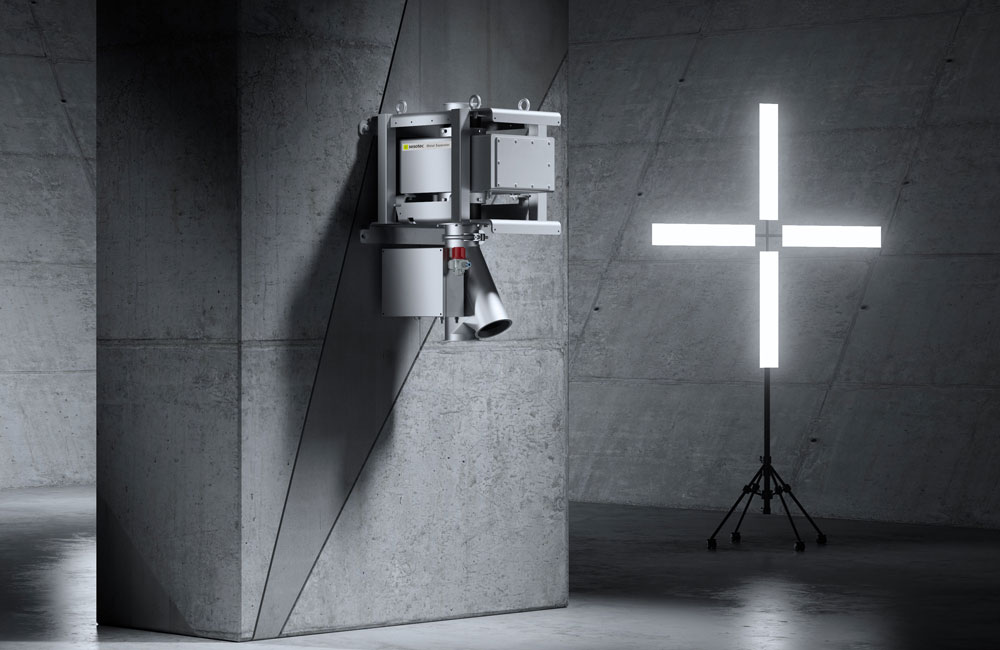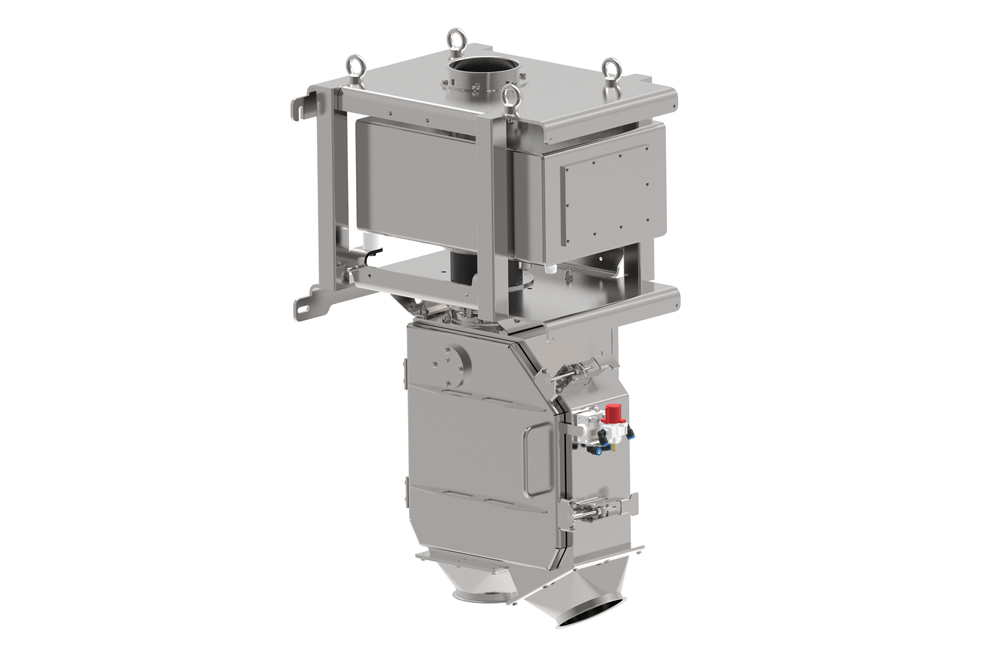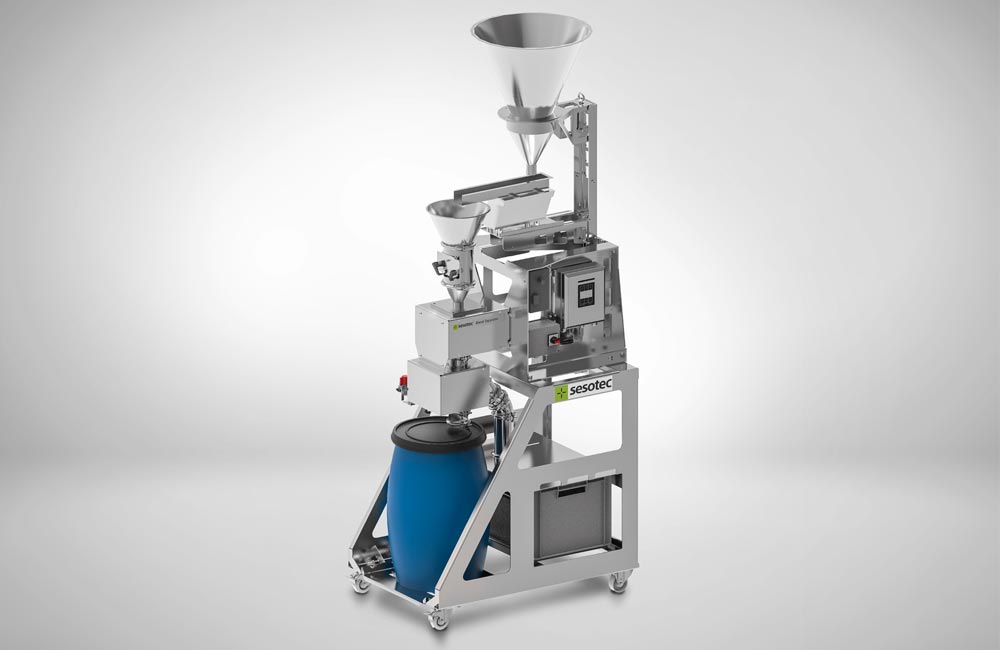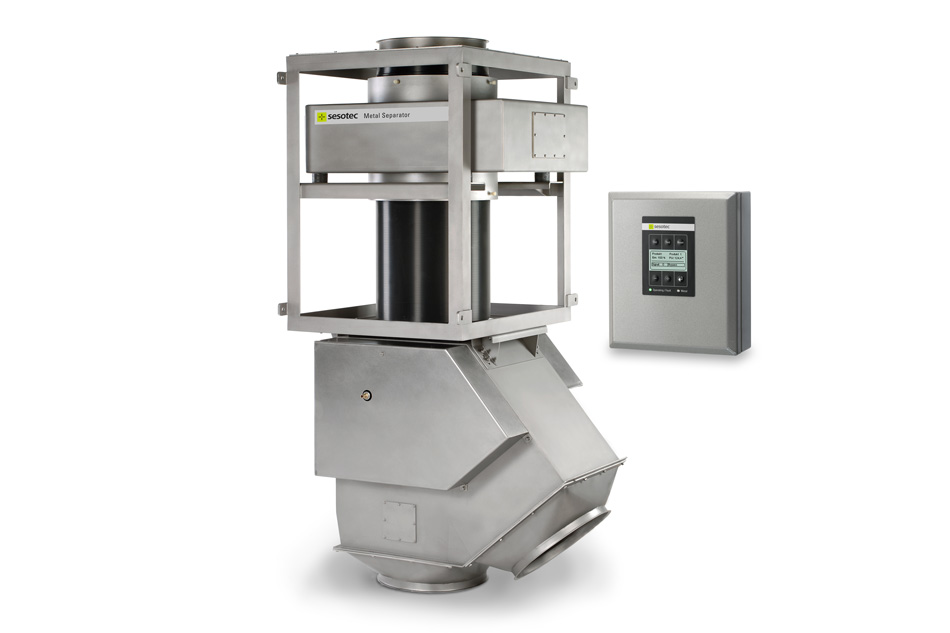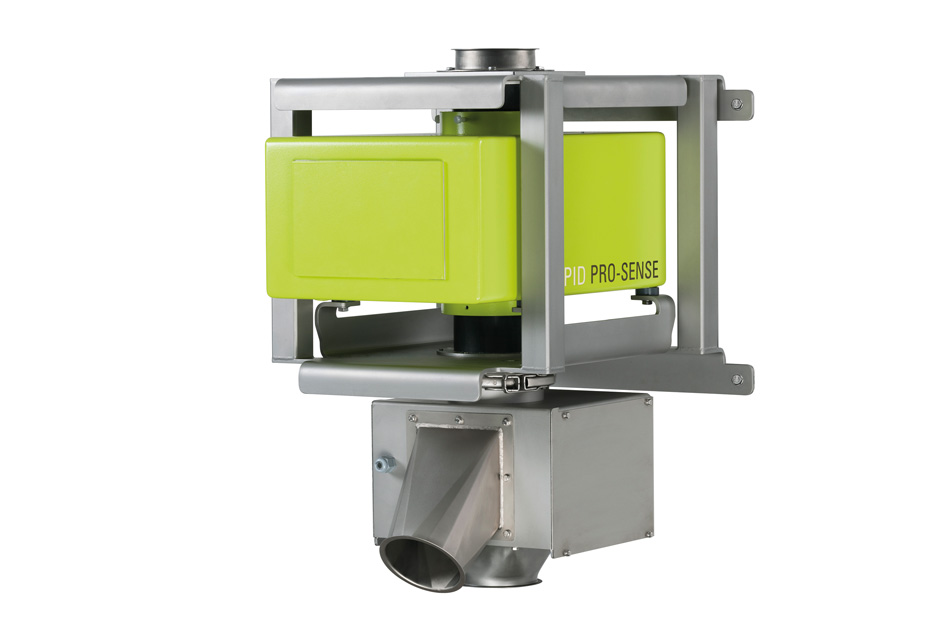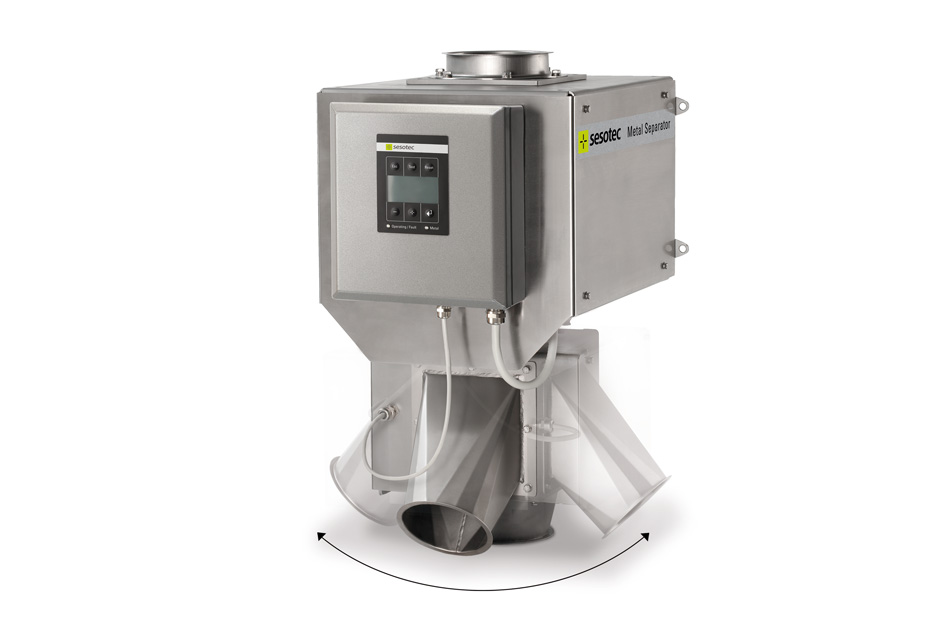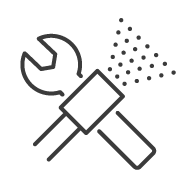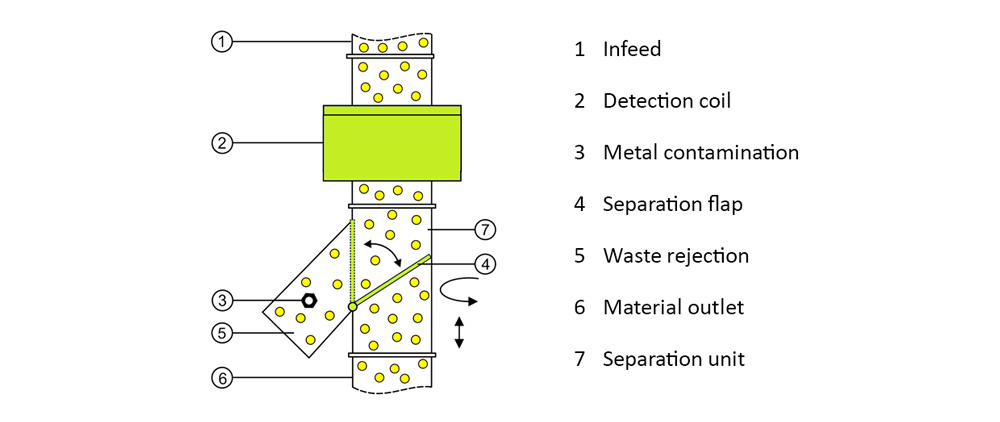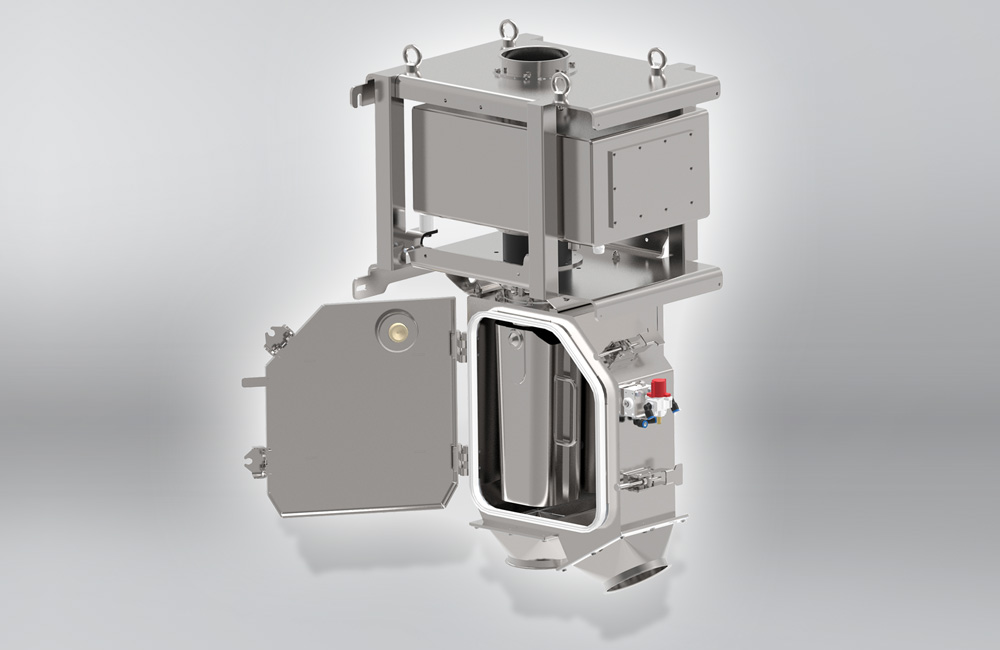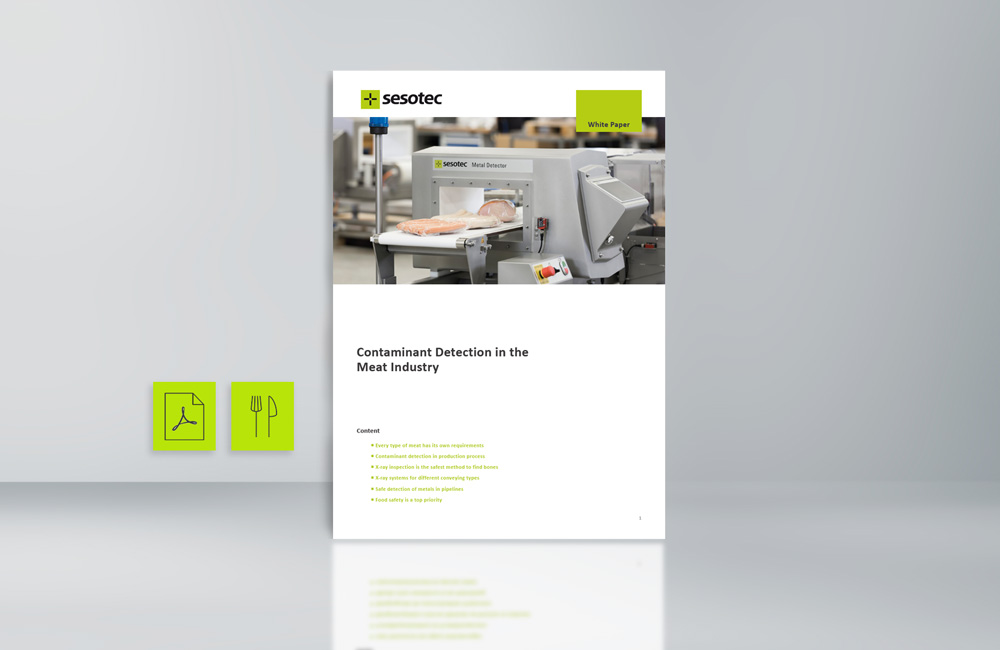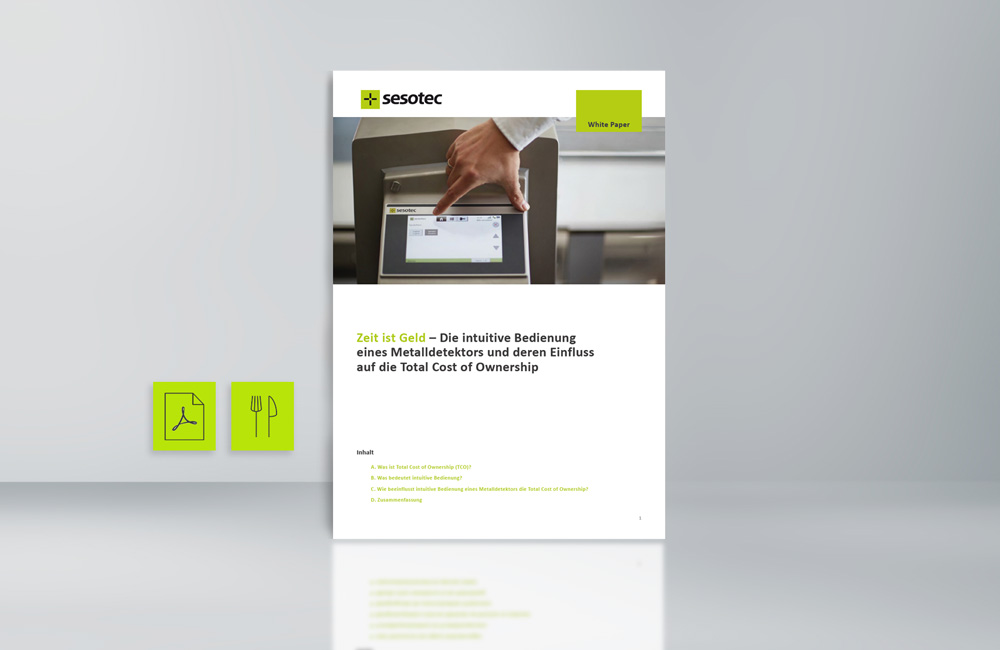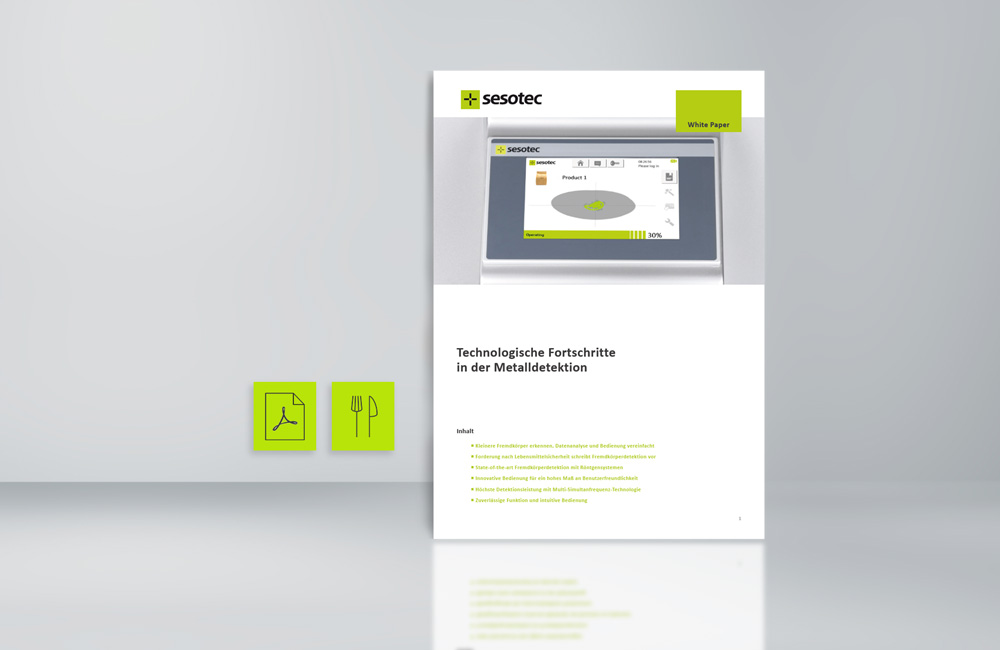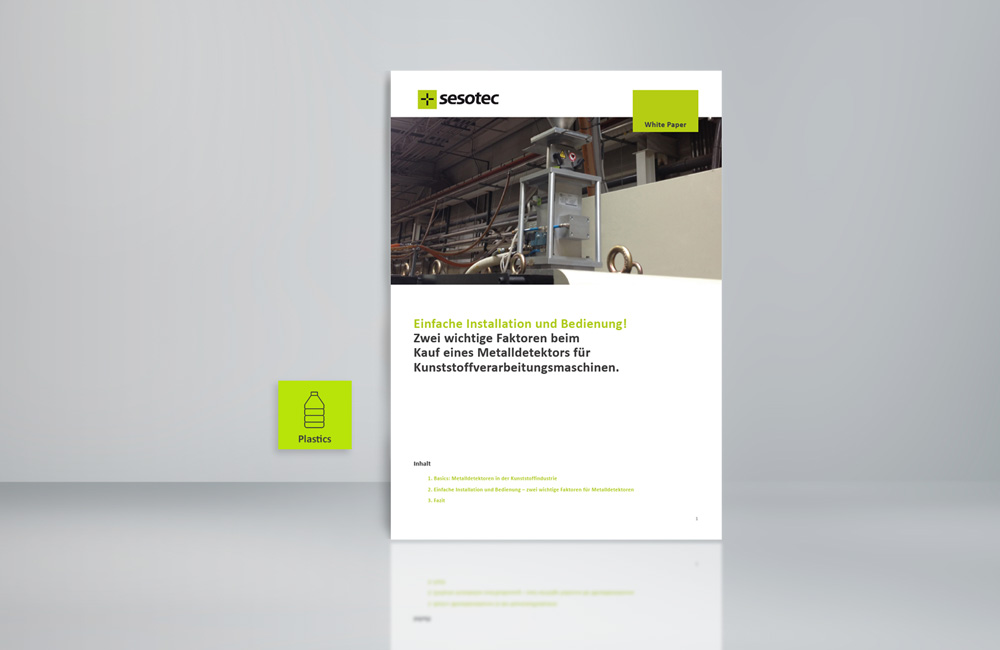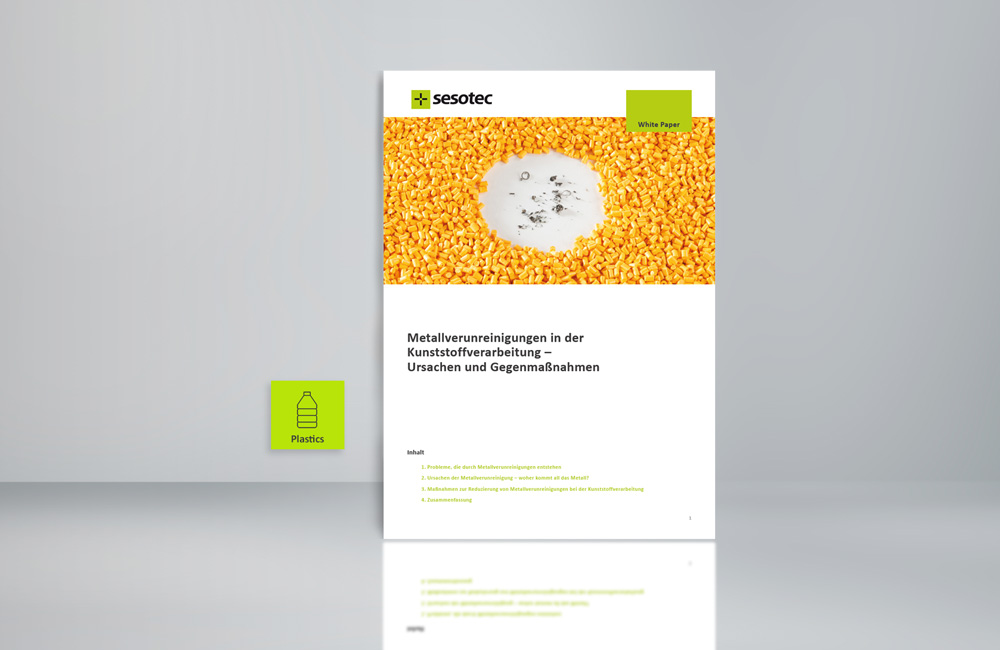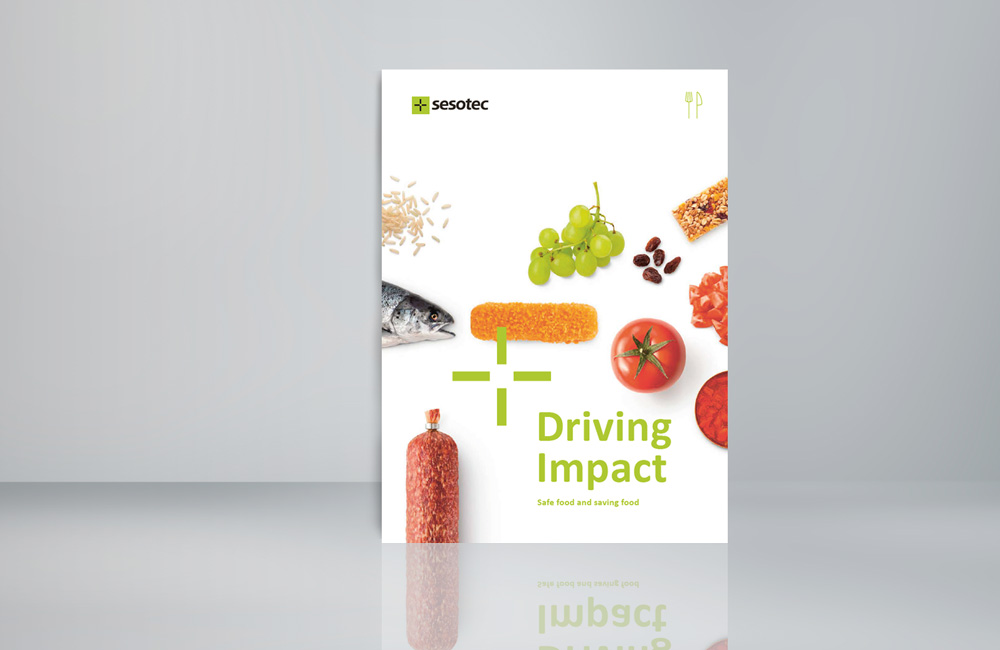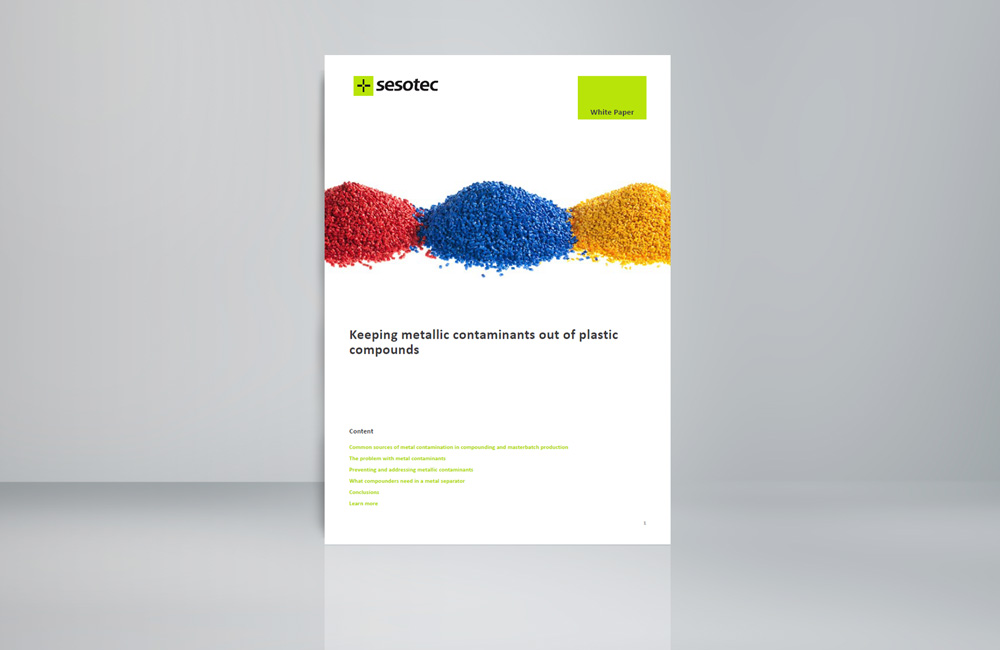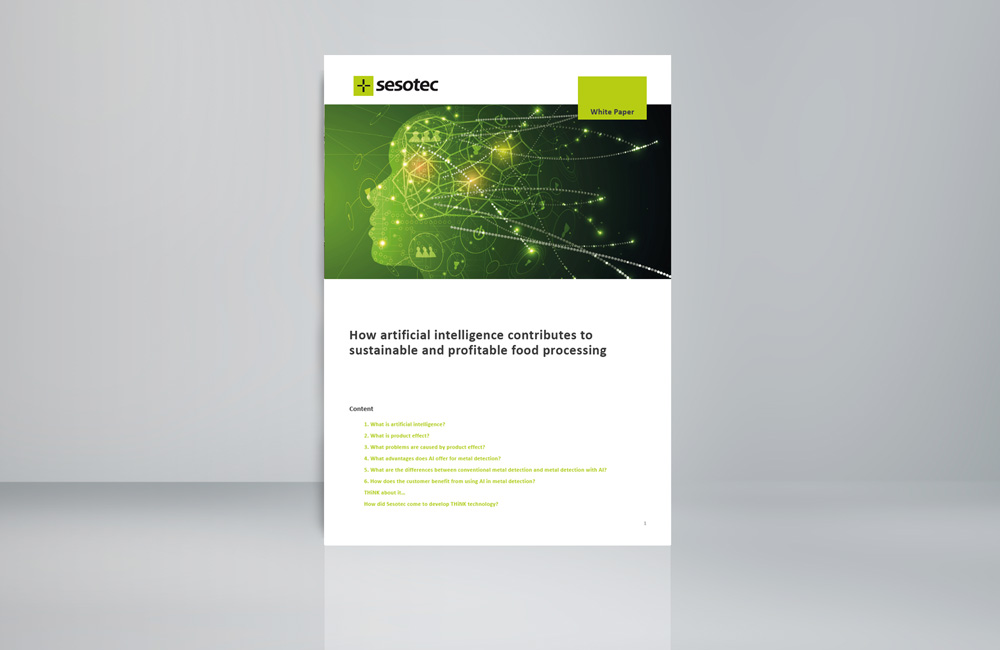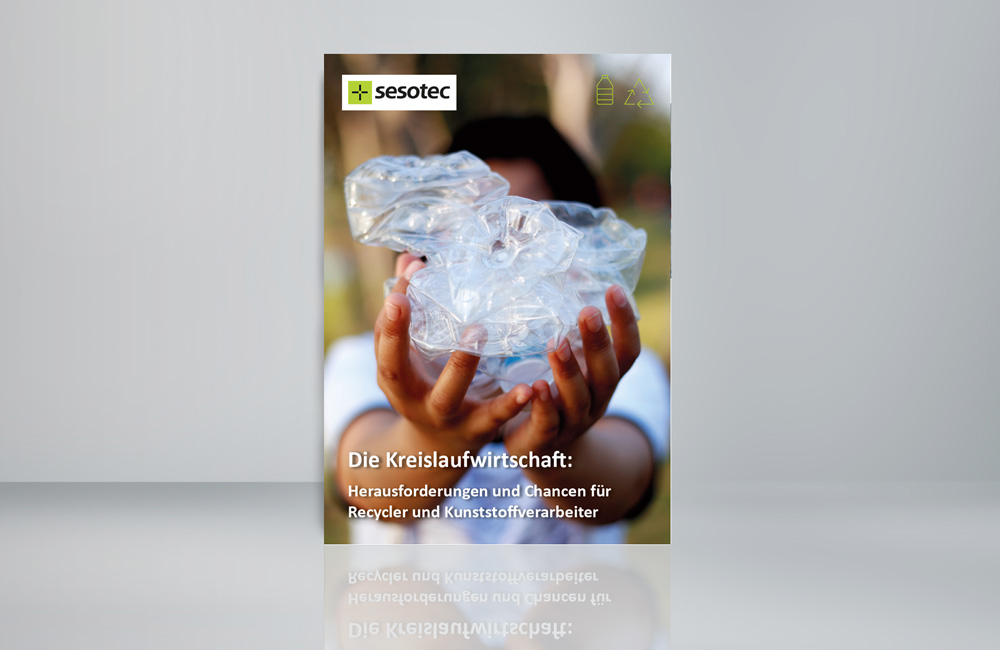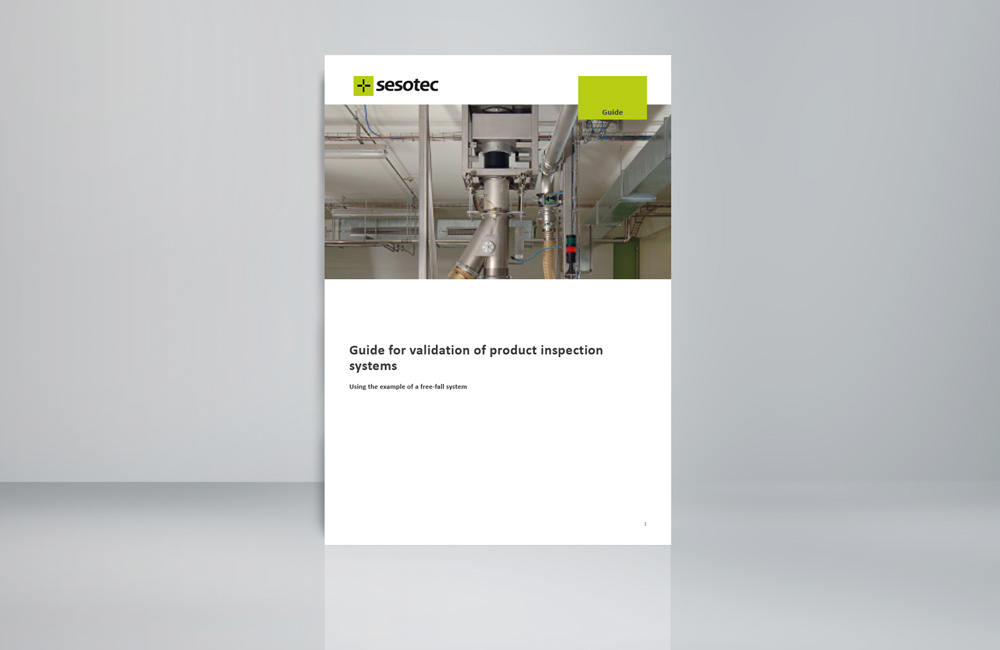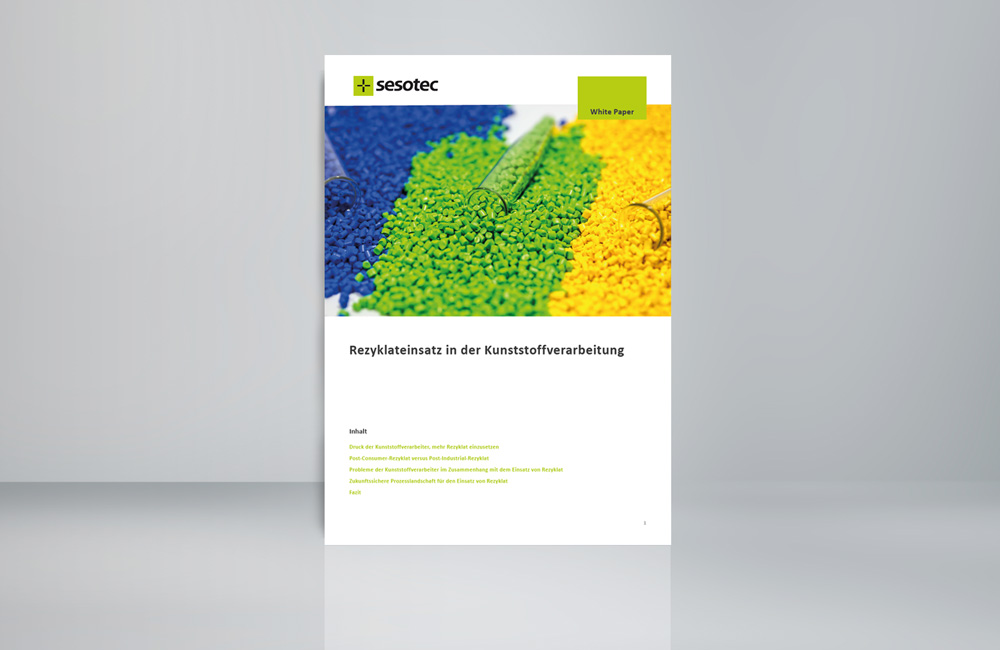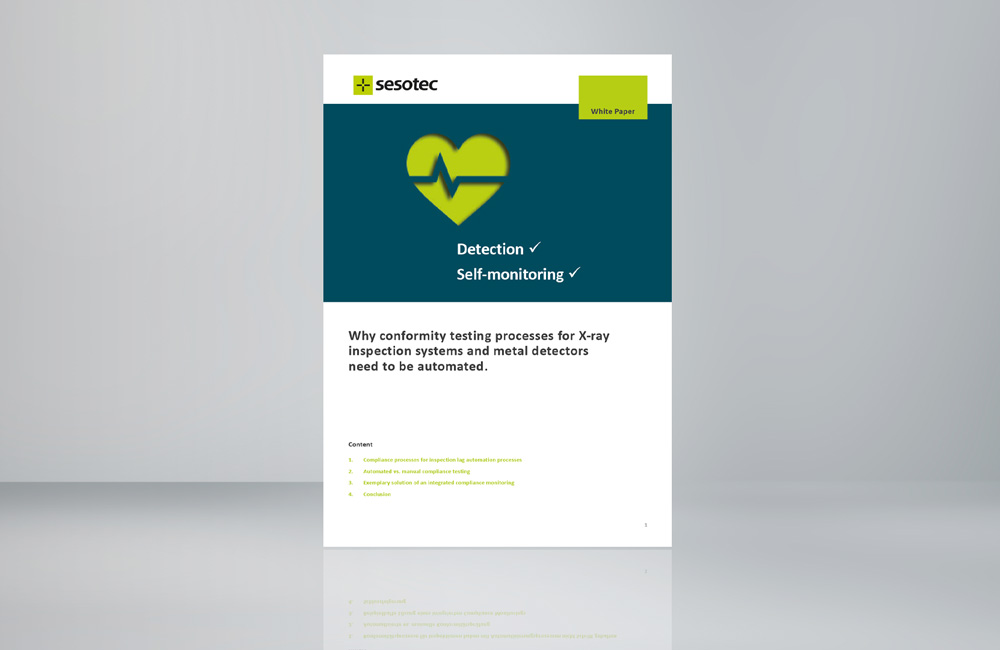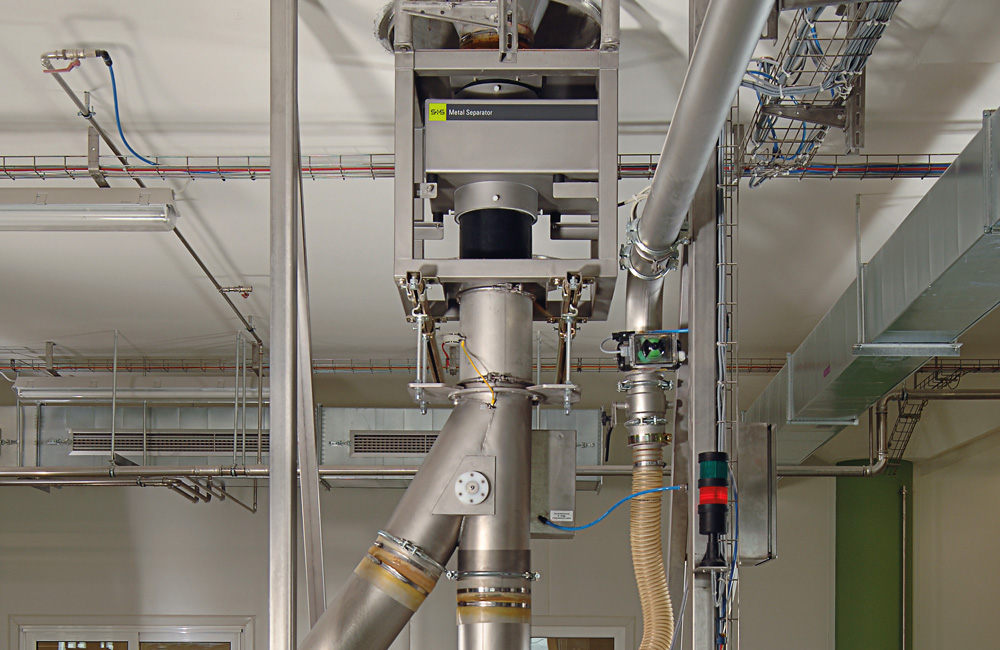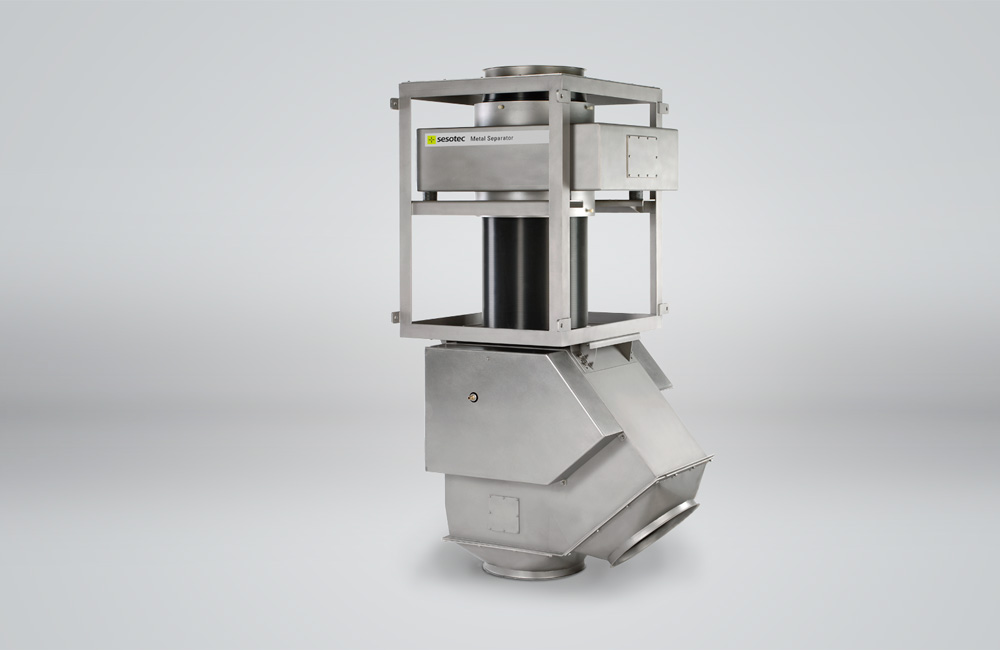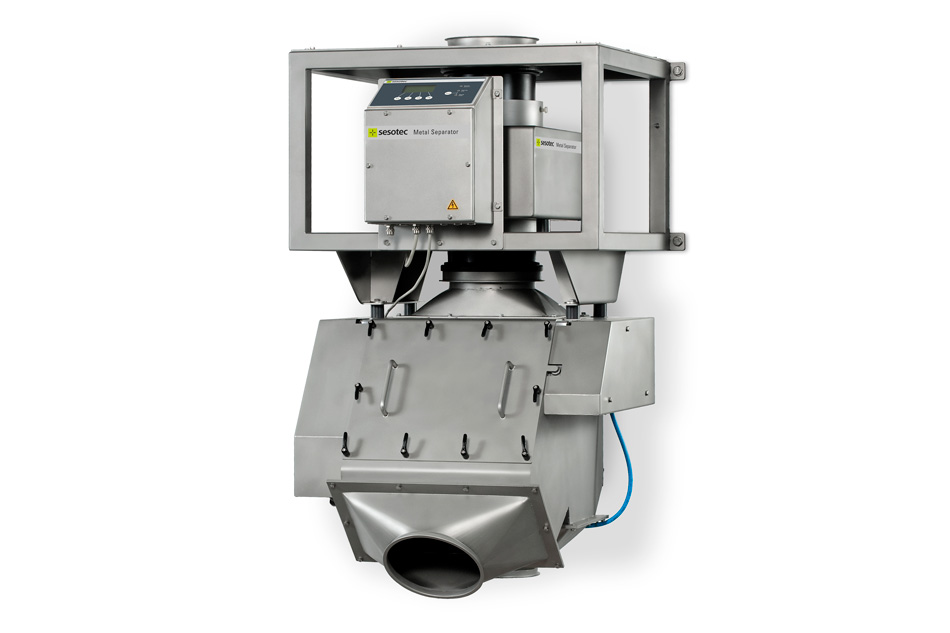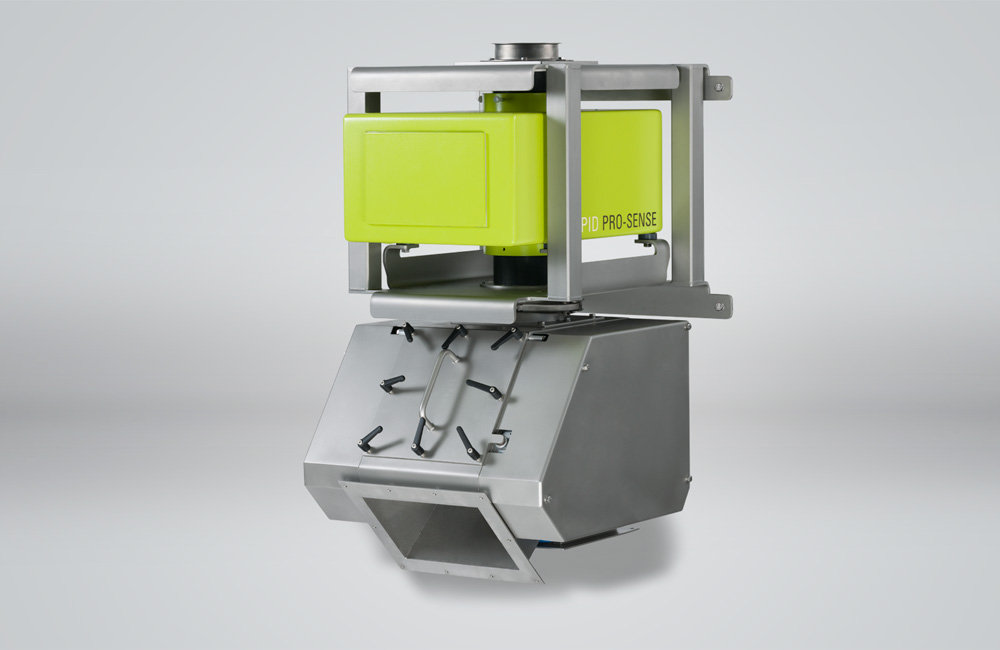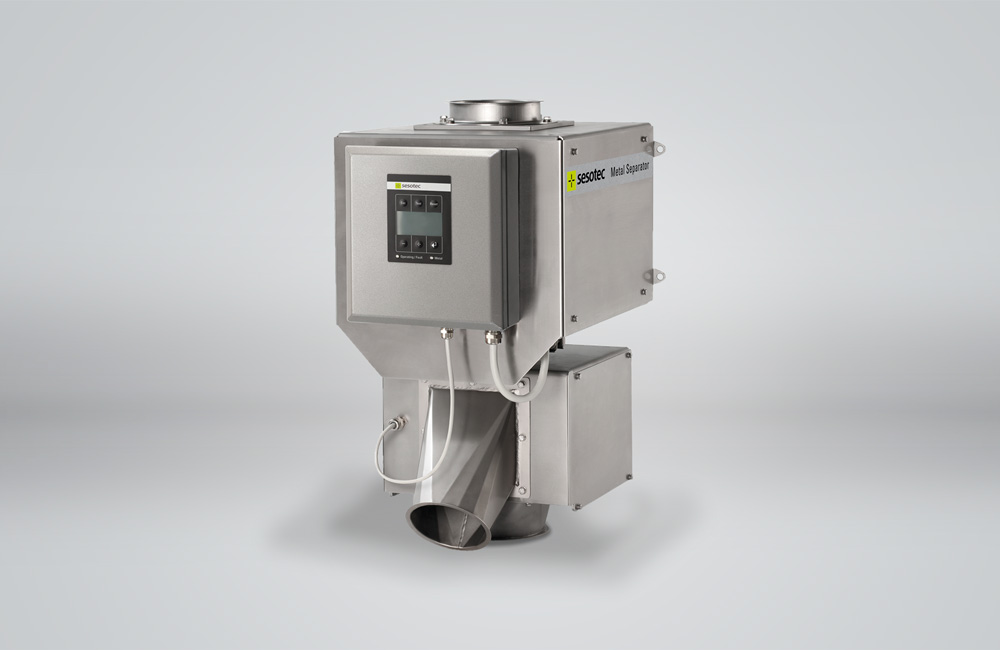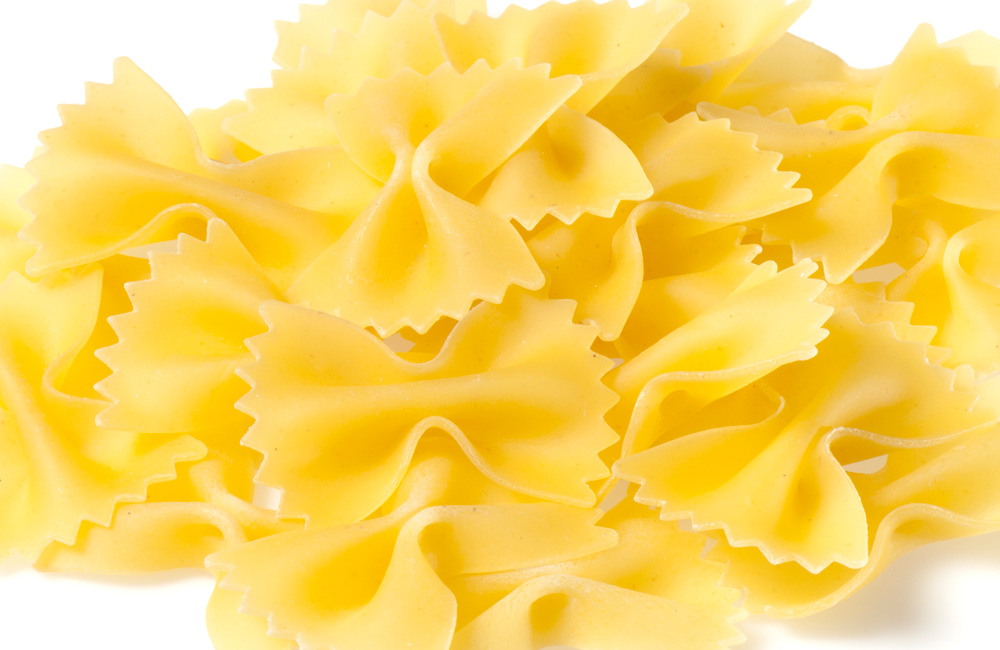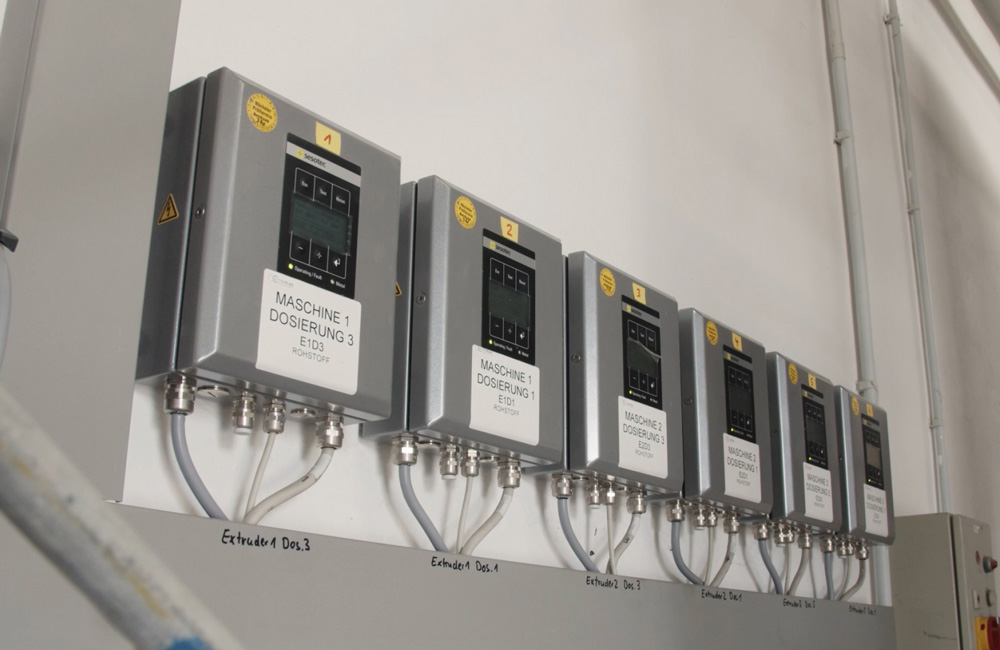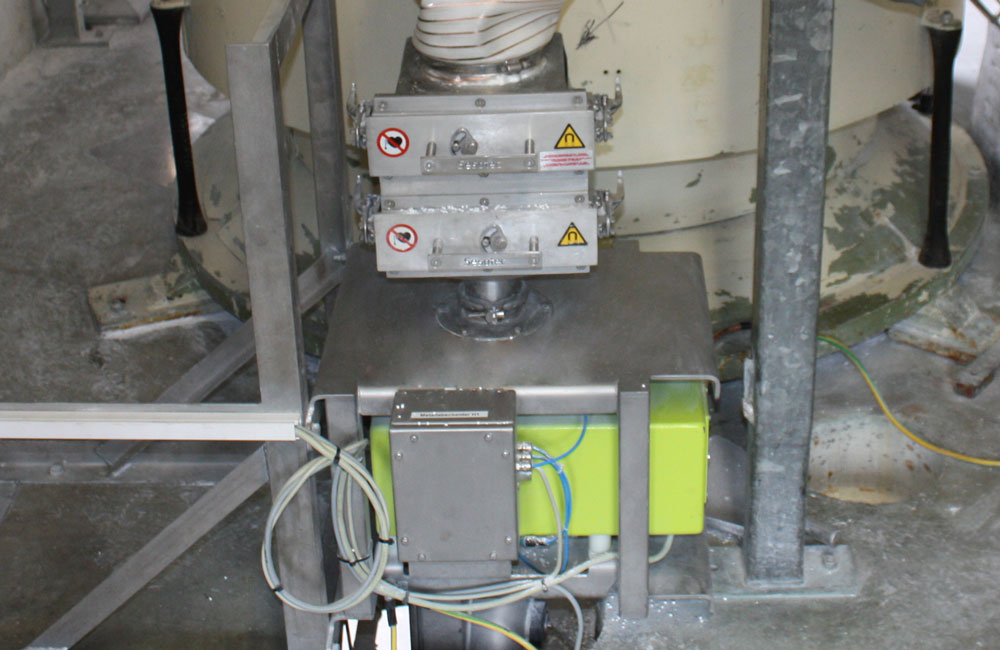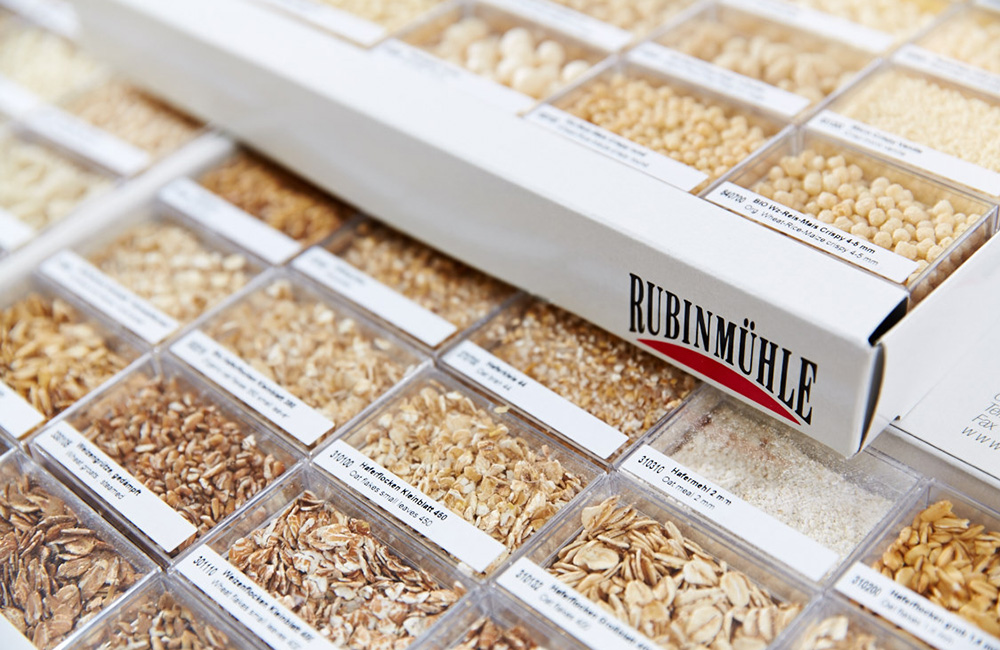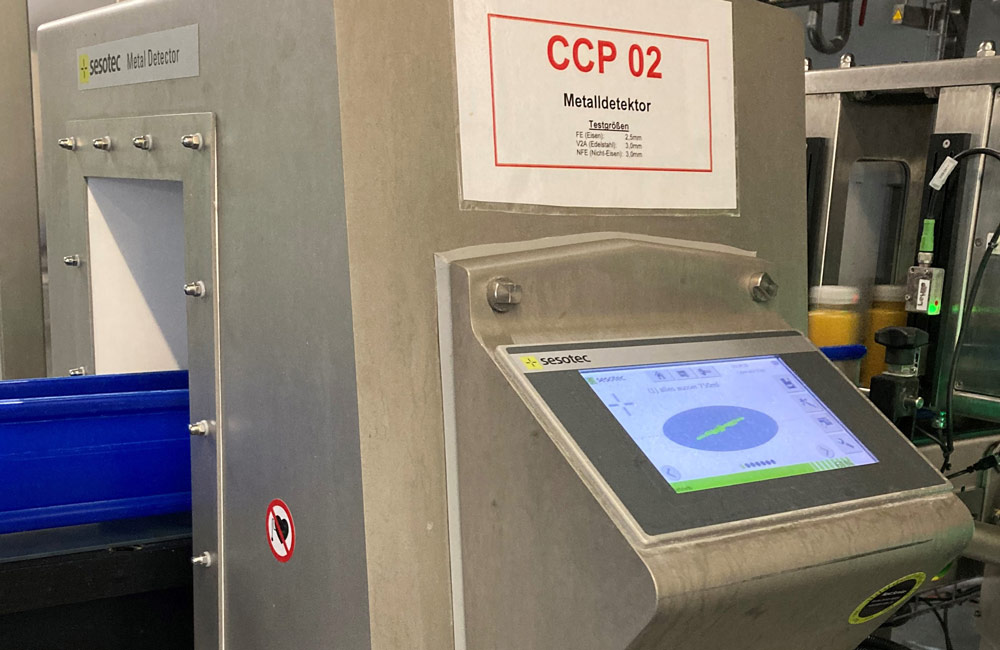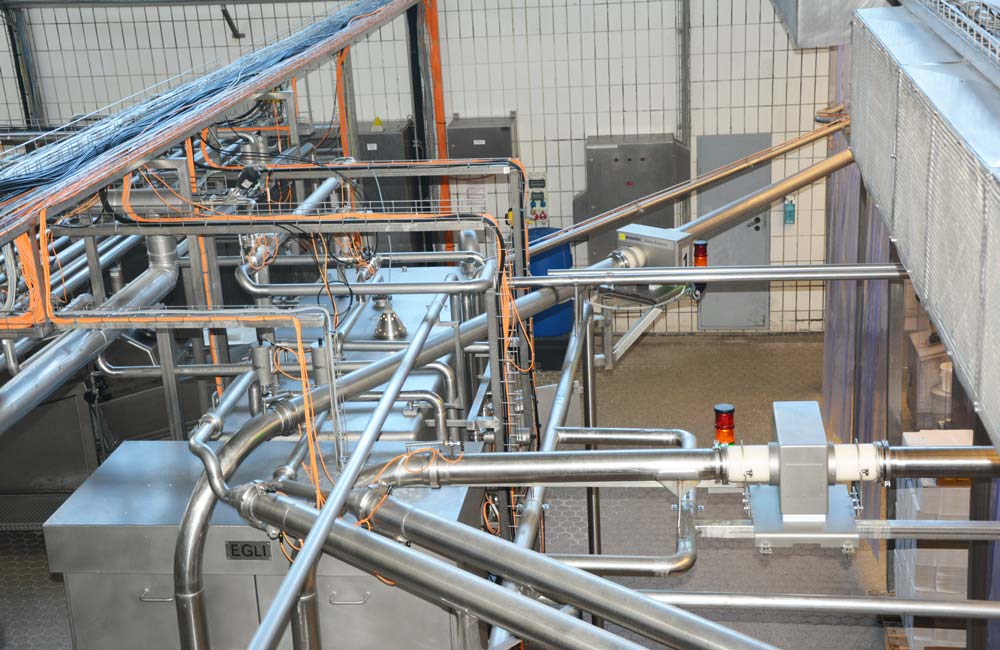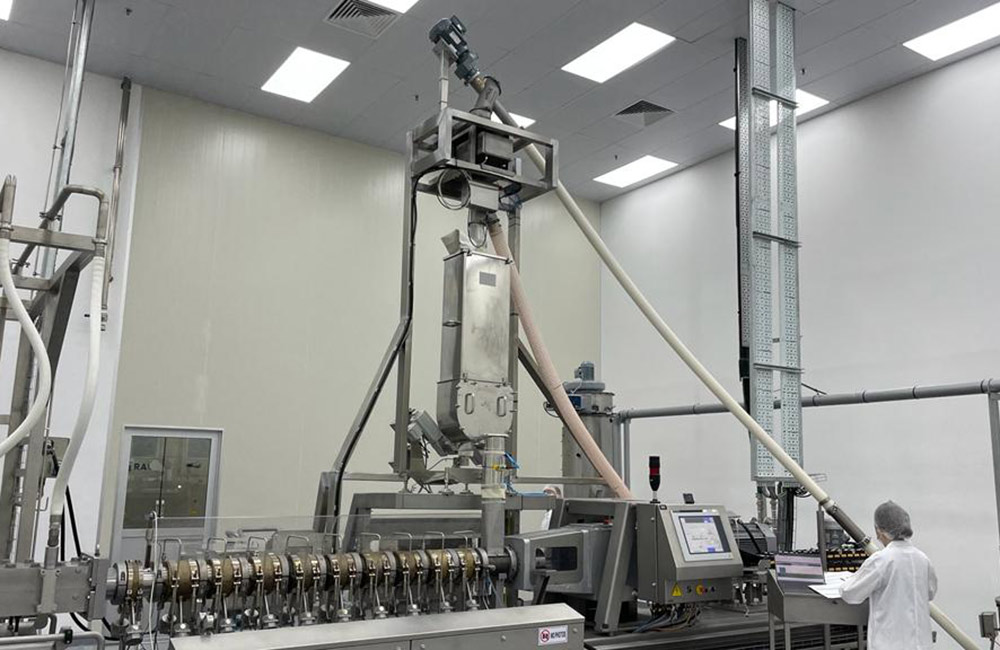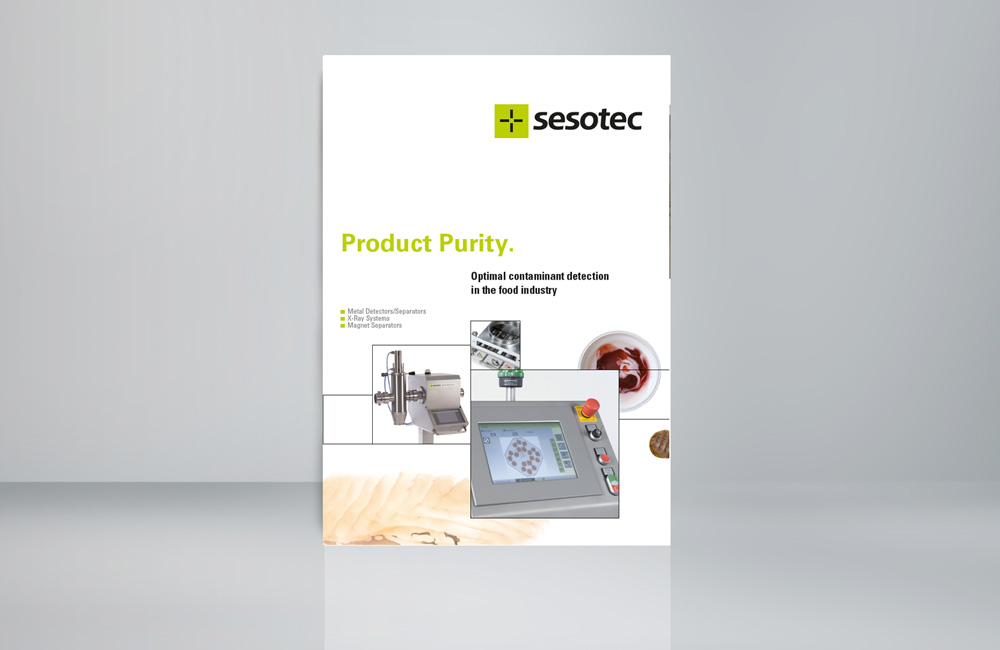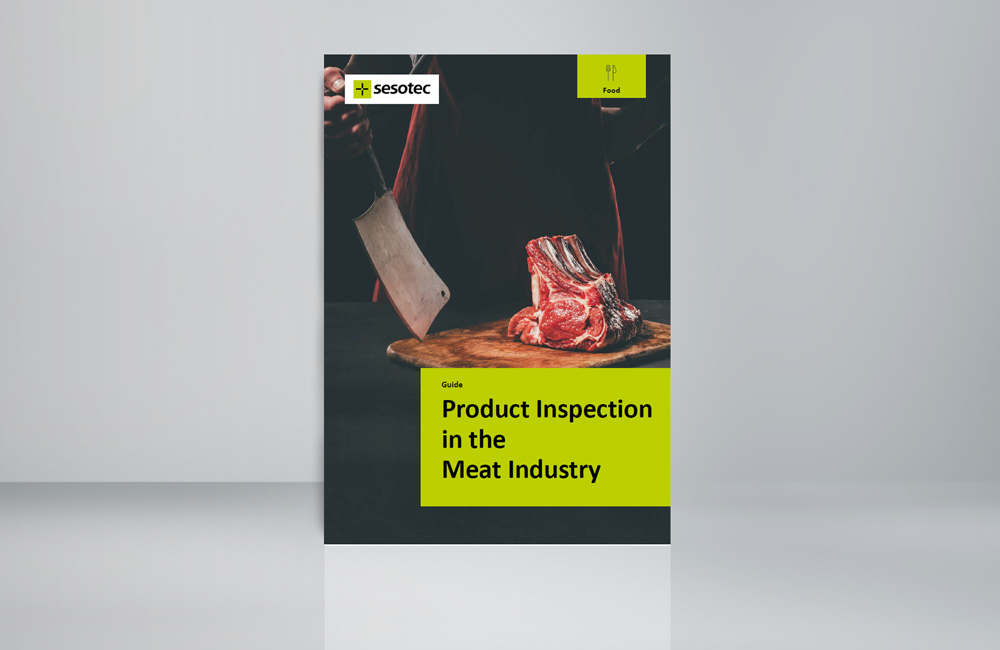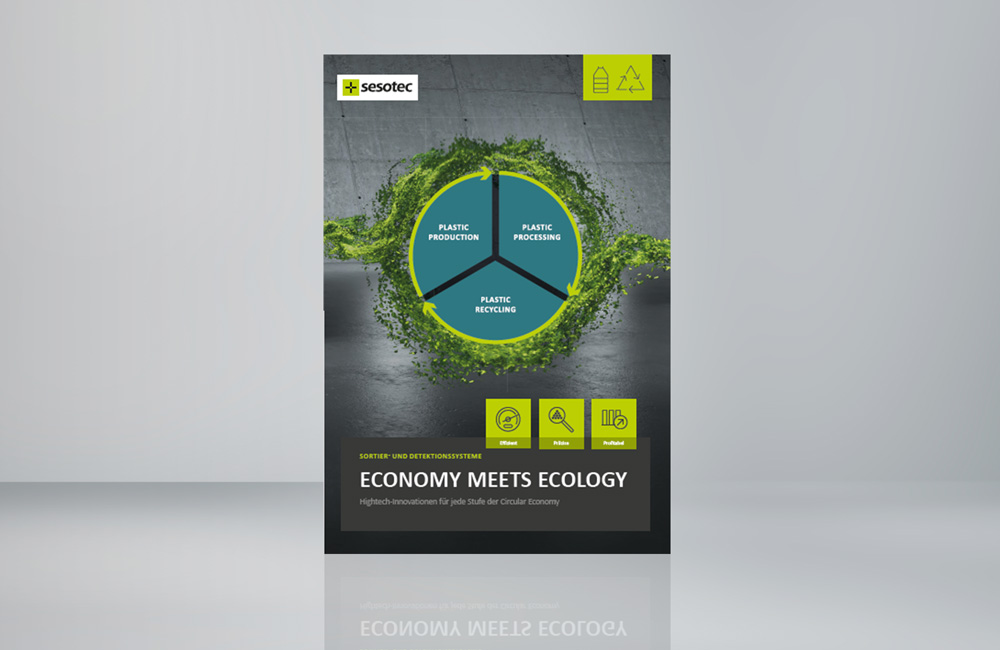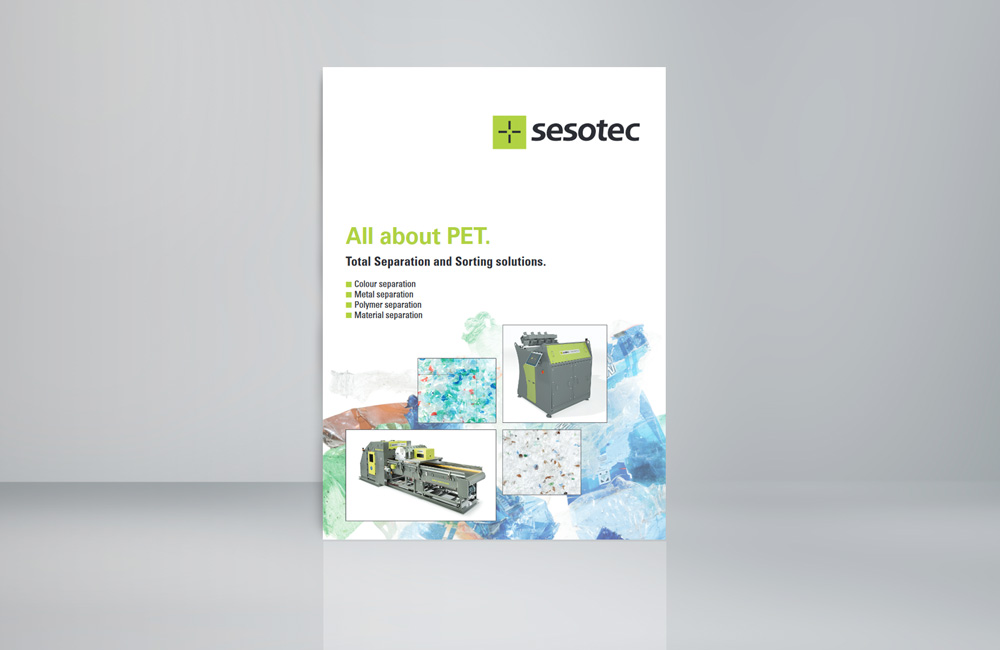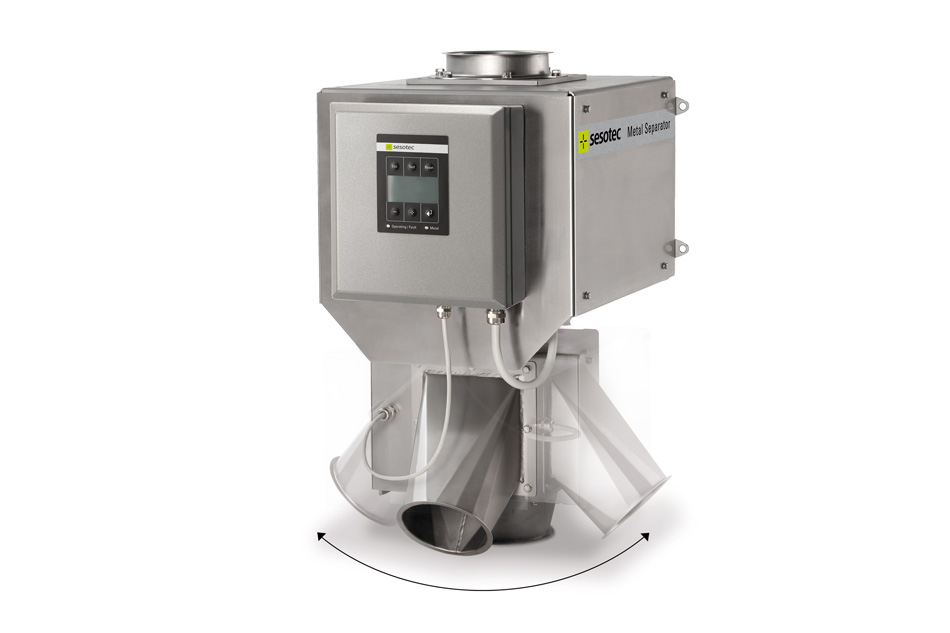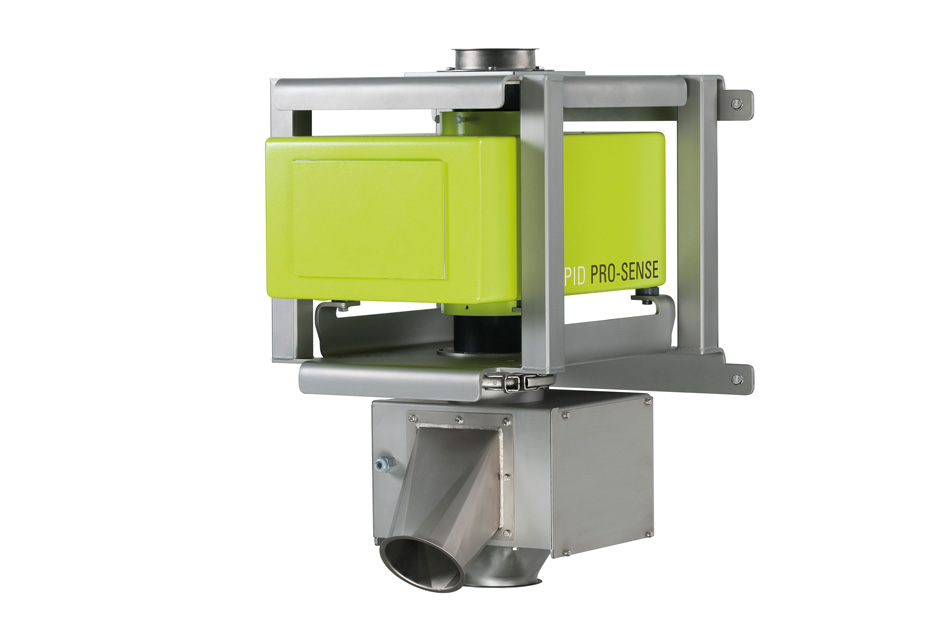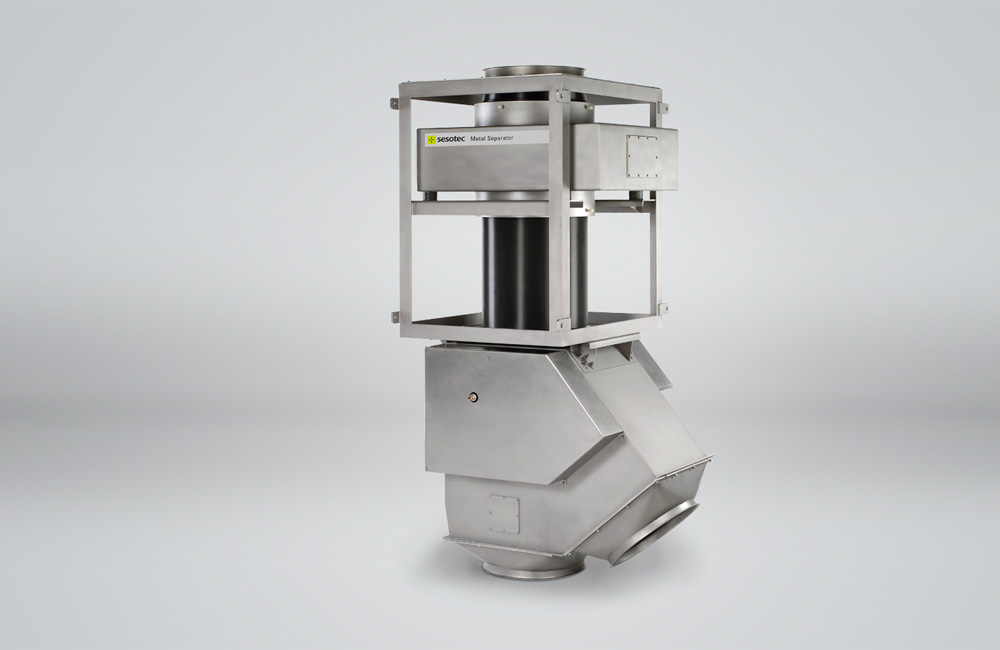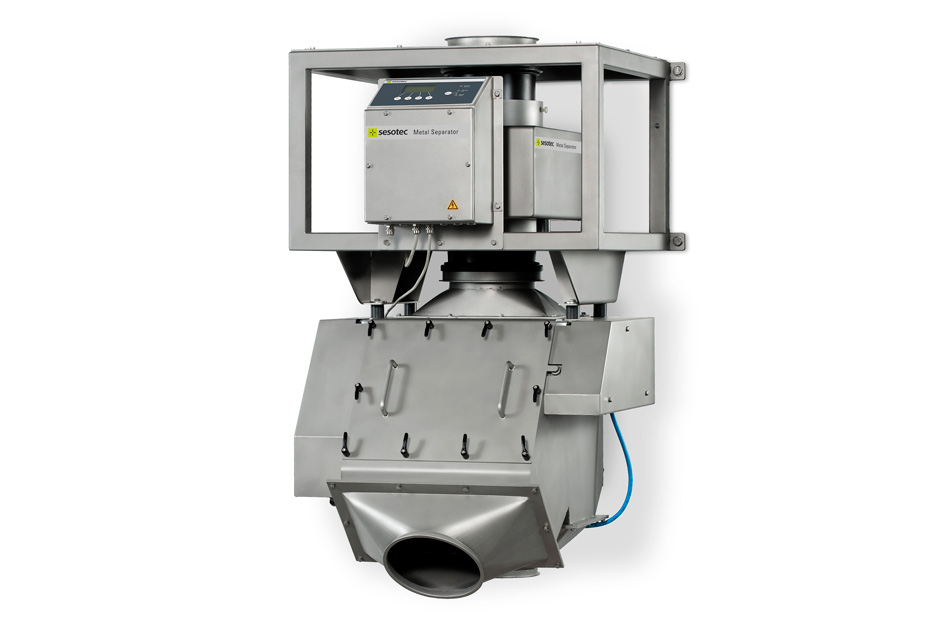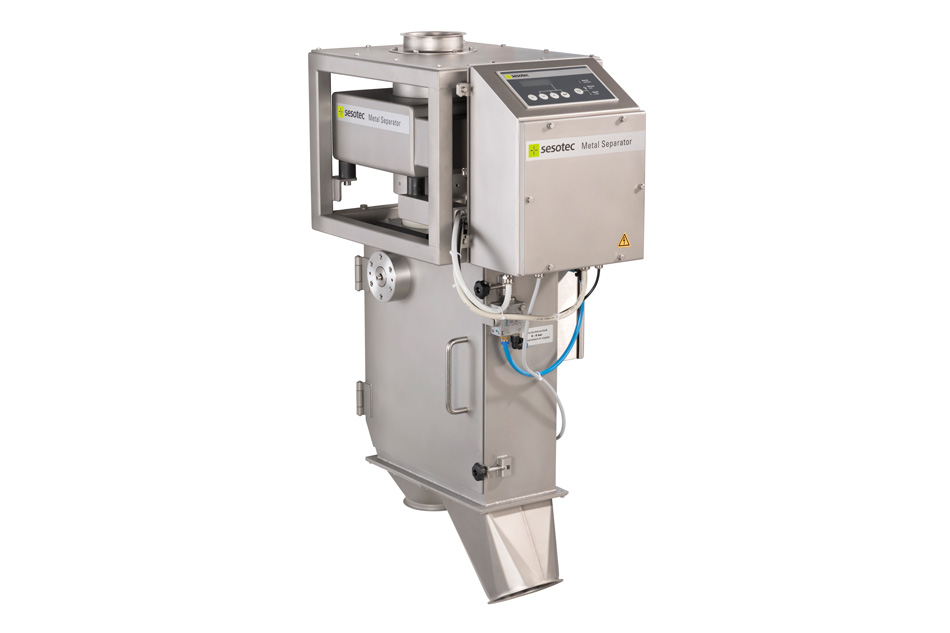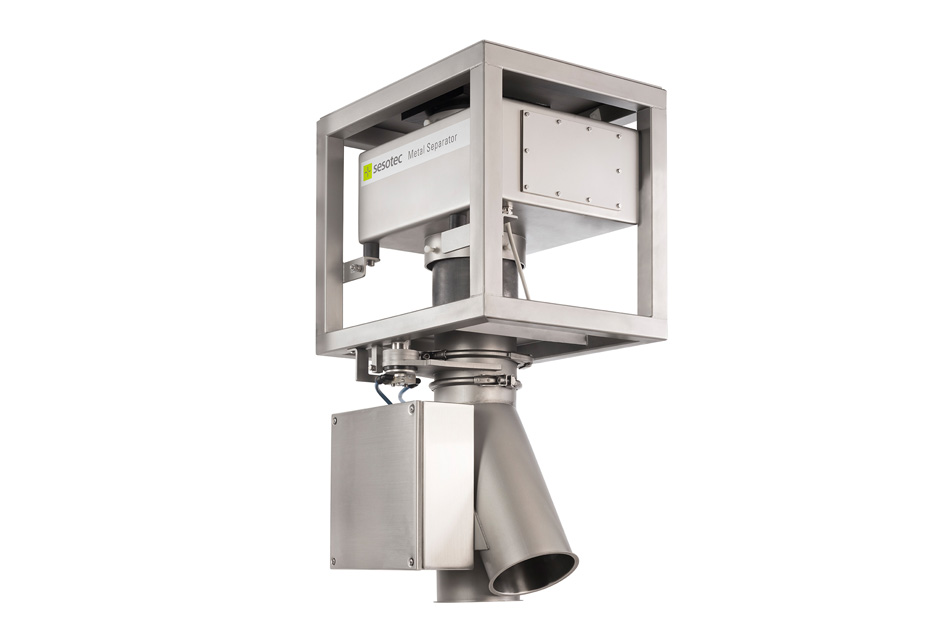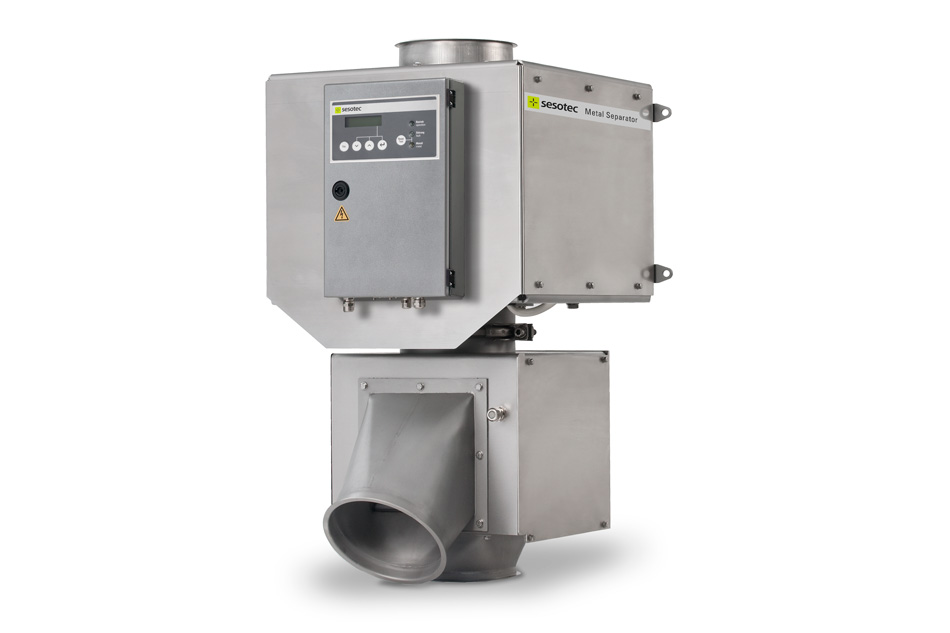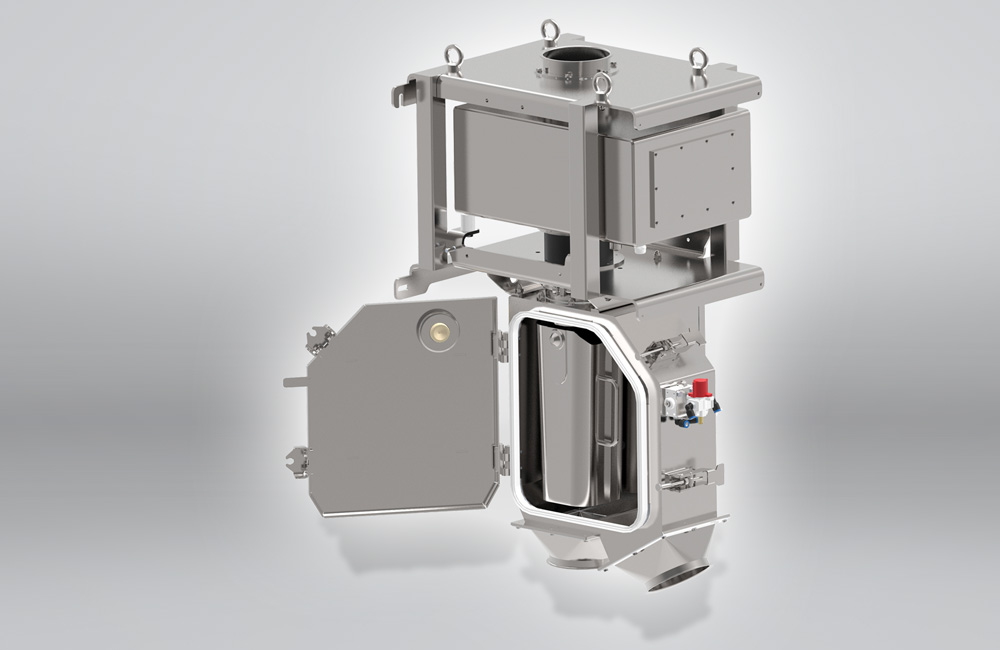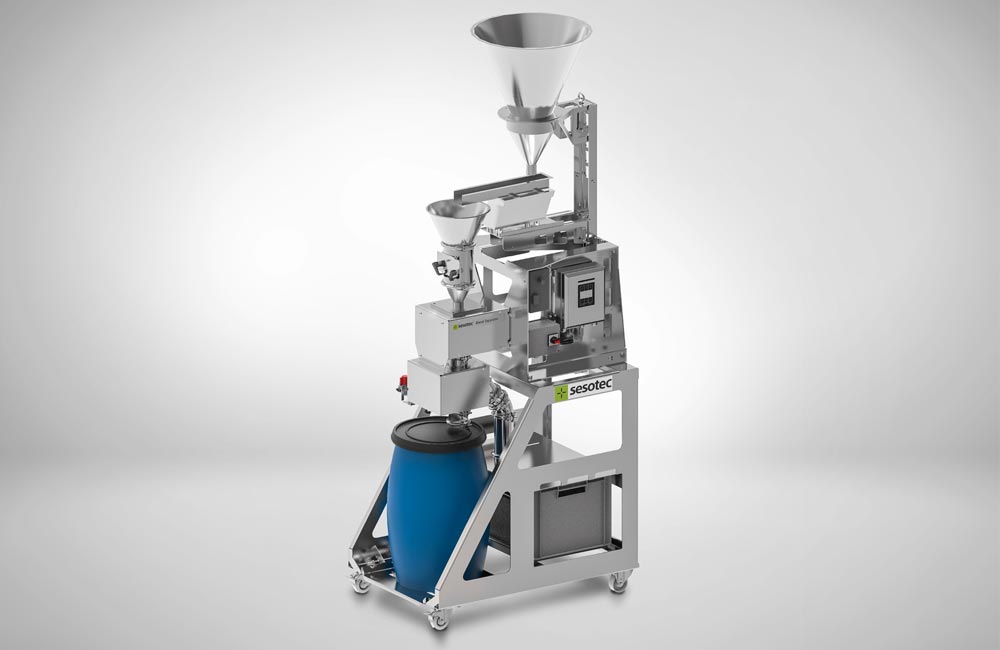Design and alternative configurations
HRF technology
The special frequency of the detection signal
facilitates enhanced detection and the removal of ferrous and non-ferrous
metals, and even minute particles of non-magnetic stainless steel. The GENIUS+
and PRIMUS+ evaluation electronics offer the following:
- Digital
signal processing and quartz-stabilized detection frequency
- State-of-the-art
microprocessor technology with self-monitoring, self-calibration and
temperature compensation
- Product
compensation with auto-learn function
- Multi-product
memory for up to 240 products
- Password
protection
- EMC
combination filter to suppress external interference
Different reject mechanisms
Apart from the standard reject mechanism, we
also offer a round version for the inspection of materials containing powder,
as well as a hopper-shaped alternative for the inspection of special materials,
or for special requirements relating to cleanability and wear protection. You can choose between different cleaning and
self-cleaning systems depending on the reject mechanism.
Self-monitoring
Our systems have visual and acoustic signaling
units, a digital event counter and a compressed-air monitoring system.
Customizable
The modular design makes it possible to adjust
the free-fall height and the position of the contamination outlet.
Special designs
When it comes to specialized applications, we offer a high-temperature
design, a special design for abrasive bulk goods and an ATEX-compliant version.
Products
RAPID PRO-SENSE 6
High-performance metal separator forresin and compound manufacturers
Product Brochure
RAPID PRO-SENSE
High-performance metal separator for free-fall applications
Product Brochure
RAPID VARIO-FS
Metal separator for plastics applications
Product Brochure
RAPID 4000
Metal separator for free-fall applications with low hygienic requirements
Product Brochure
RAPID 5000
Metal separator for free-fall applications with powders and fine-grained granulates
Product Brochure
RAPID 6000
Metal separator for free-fall applications with coarse-grained or flaky products
Product Brochure
RAPID 8000
Metal separator for free-fall applications with coarse-grained or flaky products and high hygienic requirements
Product Brochure

